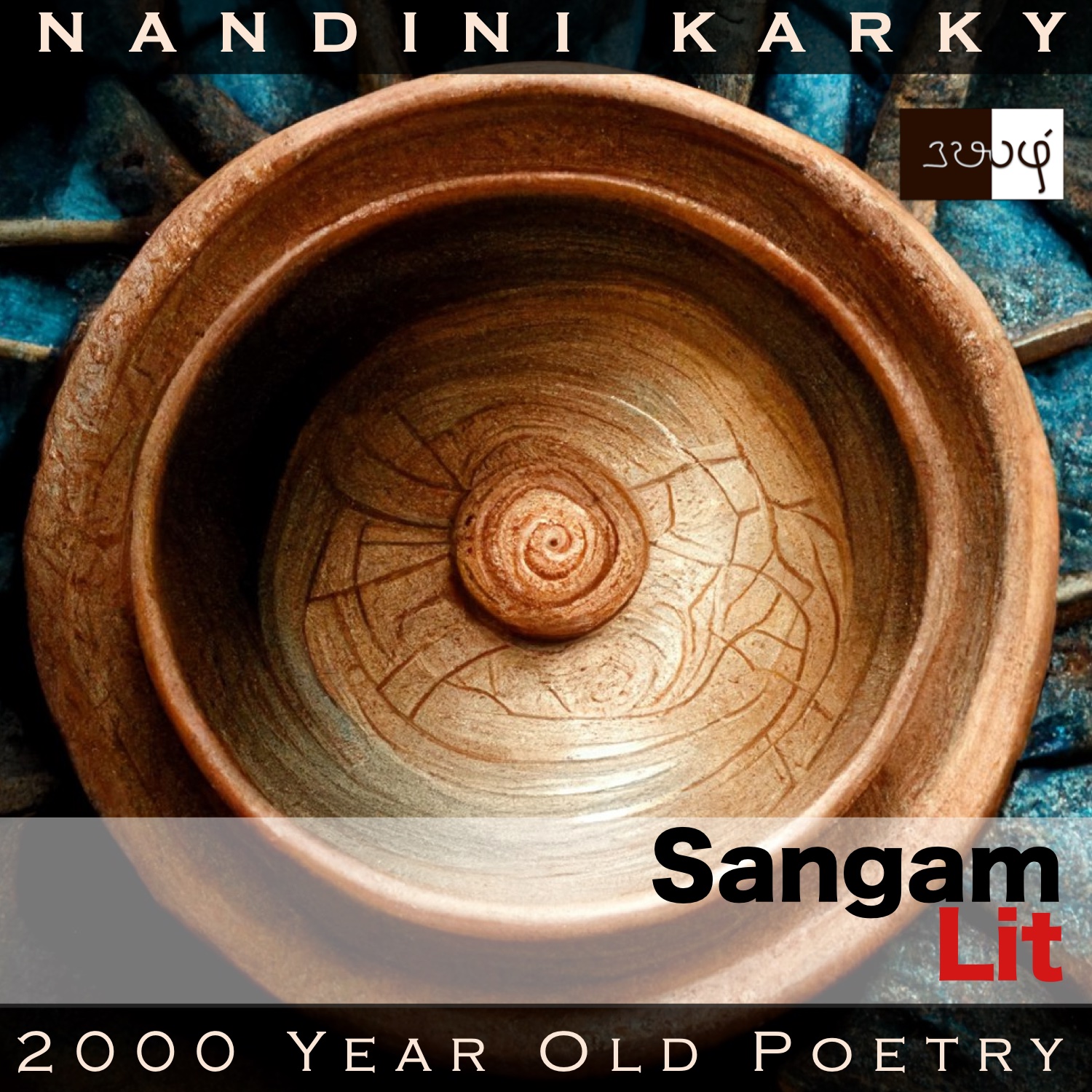Podcast: Play in new window | Download
Subscribe: Apple Podcasts | Spotify | Amazon Music | Android | iHeartRadio | TuneIn | RSS | More

In this episode, we listen to a glowing tribute to a king, as depicted in Sangam Literary work, Puranaanooru 32, penned about the Chozha King Nalankilli, by the poet Kovoor Kizhaar. The verse is set in the category of ‘Paadaan Thinai’ or ‘king’s praise’ and speaks about the wealth and generosity of an ancient monarch.
கடும்பின் அடுகலம் நிறையாக, நெடுங் கொடிப்
பூவா வஞ்சியும் தருகுவன்; ஒன்றோ?
‘வண்ணம் நீவிய வணங்கு இறைப் பணைத் தோள்,
ஒள் நுதல், விறலியர் பூவிலை பெறுக!’ என,
மாட மதுரையும் தருகுவன்; எல்லாம்
பாடுகம் வம்மினோ, பரிசில் மாக்கள்!
தொல் நிலக் கிழமை சுட்டின், நல் மதி
வேட்கோச் சிறாஅர் தேர்க் கால் வைத்த
பசு மண் குரூஉத் திரள் போல, அவன்
கொண்ட குடுமித்து, இத் தண் பணை நாடே.
A compact song that celebrates the Chozha king Nalankilli! The poet’s words can be translated as follows:
“To fill the cooking utensils of our kith and kin, he would render tall-bannered ‘Vanji’ that never blooms, is it not? ‘Those female singers, with curving, bamboo-like shoulders, streaked with colours, and radiant foreheads, must get the right reward for their flowers’ he says, and renders unto them, Madurai, with its huge mansions. Let us all sing his praises, O supplicants! If you seek to point out the one who has the claim over this ancient land, look thither! Akin to a round mass of fresh mud placed on a wheel by the wise children of potters, this cool and cultivable land lies only to be moulded according to his will!”
Time to delve into the nuances in the king’s portrait. The poet starts by talking about what the king would give to fill the cooking pots of not only the bards but also their relatives. Before we find out what that is, a moment to pause and reflect deeper on this detail. From this line, we understand that when a person earned wealth then, it was not just for them or even their close family. This was meant for an extended family including all their distant relatives. The collective thinking of that era is demonstrated acutely in this statement! Returning, we see the king offering not food, clothes or jewels to those bards but the entire city of ‘Vanji’. To explain that it’s not the flower ‘Vanji’ he’s talking about, the poet mentions it as the ‘Vanji’ that never blooms, pertaining to the ancient city of ‘Vanji’ ruled by this king.
Next, the poet turns to the female singers known as ‘Viraliyar’ in this king’s court. He sketches them as having shoulders streaked in bright colours and having a shining forehead. For these artisans, the king gives them the city of ‘Madurai’ with its soaring mansions. And so, the poet calls upon all bards to come and sing this king’s praises. Highlighting who has the right over this ancient land, the poet concludes with the words that just like the mound of clay placed by skilful children of potters on a wheel, the king can do whatever he pleases with the fertile land that he reigns over.
An apt simile to describe the power the king has over the land in his domain. He could bend it, shape it and do whatever his mind dictates because he is seen as having the full claim to that. The verse also highlights how it’s the nature of poets to speak in hyperboles or exaggerations. For if the king were to really give away city after city to those who sing his praises, he would soon run out of cities indeed! It’s up to the reader to infer the true meaning of the writer’s words and relish the portrayal of this Chozha king’s generous nature in bold and bright colours!




Share your thoughts...